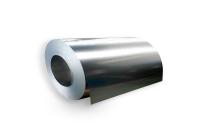
Core materials play a pivotal role in electrical equipment, as their performance directly impacts the efficiency and stability of the devices. With the increasing demand for energy-efficient systems in modern power grids, optimizing the performance of core materials has become a key focus in research and development. From material composition to manufacturing processes, significant advancements have been made, paving the way for further improvements in equipment performance.
One of the critical aspects of optimizing core material performance is reducing hysteresis loss and eddy current loss. In recent years, high-grade silicon steel and amorphous alloys have become focal points in material innovation. High-grade silicon steel reduces hysteresis loss through optimized silicon content and grain structure, while amorphous alloys, due to their lack of grain boundaries, exhibit even lower eddy current loss. Although their applications differ, both materials provide effective solutions for enhancing core performance.

Improving manufacturing processes is another crucial factor in enhancing core material performance. High-precision rolling and laser cutting technologies have not only improved the dimensional accuracy of materials but also minimized edge losses. Additionally, optimized annealing processes eliminate processing stresses, thereby enhancing magnetic permeability. Research has shown that advanced coating techniques further reduce interlaminar resistance in cores, thereby decreasing energy loss during operation.
In recent years, smart manufacturing and digital technologies have also been incorporated into the development and production of core materials. For instance, artificial intelligence is used to optimize material formulas and process parameters, significantly shortening development cycles. Meanwhile, digital twin technology allows researchers to simulate the performance of core materials in virtual environments, greatly enhancing development efficiency. These cutting-edge technologies are driving core materials toward higher efficiency and precision.
The performance optimization of core materials is not only a critical area of technological advancement but also contributes significantly to the goals of energy conservation and environmental protection in electrical equipment. With the continuous emergence of new materials and technologies, core materials will see further performance improvements, providing robust support for the future of high-efficiency power systems.
Silicon steel coating process introduction(1)
2023-03-13Application of stainless steel in various industries
2021-05-20Comparison of Advantages and Disadvantages Between Seamless Cores and Traditional Laminated Cores
2024-12-10The influence of the production technology of motor punching on the quality iron core
2023-08-31Influence of silicon steel material on transformer performance
2024-11-22The Key Role and Technical Analysis of Silicon Steel in Transformer Core Applications
2024-11-23






